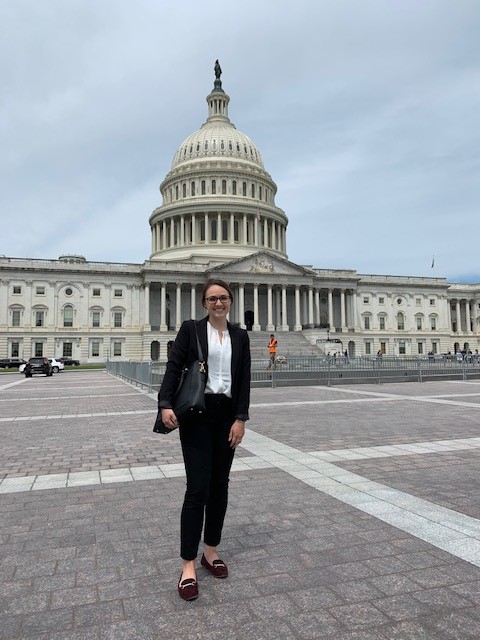
It’s About Time Everyone Cares about Politics
 Editor’s note: Sarah Morrison is wrapping up her summer internship with the Coalition on Human Needs. Sarah, a rising senior who is studying Economics and Non-Profit Leadership at the University of Maryland, shares with us her thoughts and experiences as a CHN intern.
Editor’s note: Sarah Morrison is wrapping up her summer internship with the Coalition on Human Needs. Sarah, a rising senior who is studying Economics and Non-Profit Leadership at the University of Maryland, shares with us her thoughts and experiences as a CHN intern.
Butting heads. Gridlock. Threats of shutdowns. An infuriating lack of progress. We can all agree that government today is polarized, at least on the federal level.
I grew up in a small, moderately conservative town. I was shown how to think and how to behave appropriately, which largely meant being a modest young woman and keeping my political ideals to myself. I never understood the heat behind political debates or the tension between opposing sides. Then, I began to study at a progressive institution and explore on my own accord, finding my step and discovering just how essential those debates are.
Since beginning college I’ve been provided with an abundance of opportunities – opportunities that allowed me to grow as an individual and insert myself into the communities around me. While studying economics exposed me to the meaningful intricacies of monetary and fiscal policy, enrolling in a Nonprofit Leadership and Social Innovation minor has opened countless doors to the world of advocacy. When it came time to apply for an internship, the Coalition on Human Needs (CHN) seemed like a natural fit.
Entering the internship with a background in economics drew me to very specific topics, and CHN encouraged that interest. CHN allowed me opportunities to research tax implications on programs such as SNAP, attend policy-related events, and interact with economists in whose steps I wish to follow.
It can be immensely overwhelming to begin to understand just how many of our peers are suffering the consequences of policies that cast aside those who are screaming for help, as I have begun to learn this summer.
Who are these people? They are the 1 in 6 children living in households where there isn’t always enough to eat, they are the parents working three jobs without benefits to pay for rent, water, and heat, they are the millions of our neighbors who struggle to meet basic needs. Vulnerable and low-income populations continue to be ignored as superficial statistics such as GDP, unemployment rate, and stock growth supplant how we think about the needs of the poor and the near-poor.
If it is not obvious, my point is this: these numbers do not translate to the improved well-being of everyday Americans. They may tell us how the wealthiest among us are faring, but they do not speak to the plight of the vulnerable.
To “not care” about politics is privilege. If you can wake up and not have Trump’s proposed change in how poverty is measured by chained CPI or cuts to health care or nutrition assistance affect you, that is privilege. But that does not excuse not caring.
My experience here has allowed me to see the value in organizations such as CHN in encouraging people to do just that. By partnering with so many important member organizations and using approachable methods to educate people about current policy issues, big and scary problems suddenly become solvable.
Interning at CHN has certainly given my career a new direction. By being able to engage with an active coalition of advocacy organizations, I have seen an entire ecosystem within D.C. that I hardly knew existed. These nonprofits, think tanks, and service providers all work tirelessly to accomplish their goals, but perhaps more impressively — they never stop working to help each other accomplish their own goals. CHN encourages a climate of cross-pollination. CHN member groups emerge from their issue silos and help each other.
It is truly a community in every sense of the word.
The world of legislative advocacy for underserved populations is evolving — always growing and adapting to current issues. I give my sincerest thank you to CHN for showing me the value of this line of work in addition to my own value as an individual who unapologetically cares.

